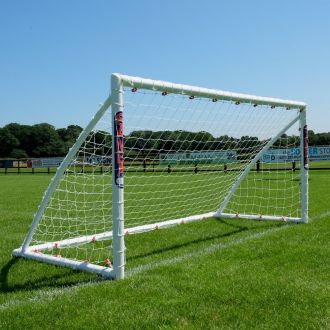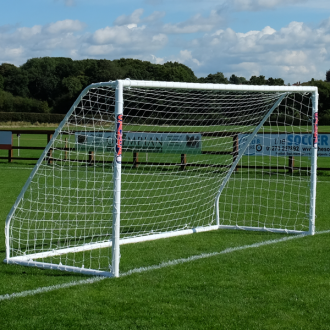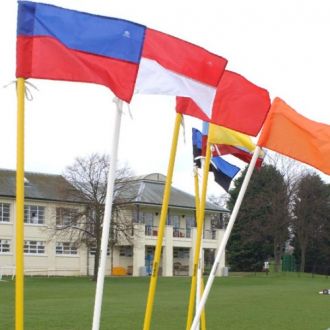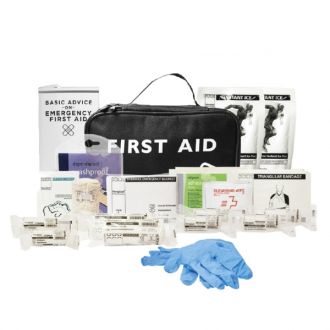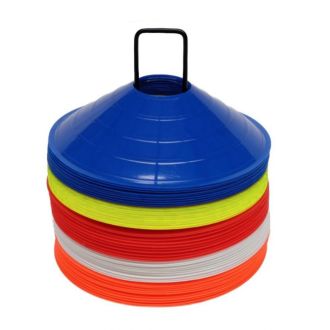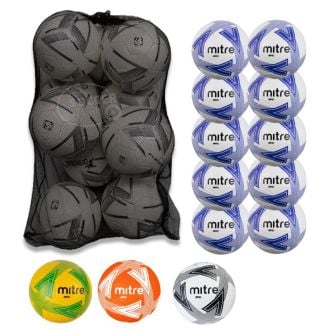How to Set Up a New FA-Affiliated Football Club
Playing park football with friends is a great way to socialise and stay fit. But if you’re looking to take the next step, it might be time to set up a club of your own.
Before you take the plunge and register your own FA-affiliated club, you should ask yourself four questions:
- Do we have enough players to fulfil our league obligations?
- Do we have enough volunteers to administer the club?
- Do we have somewhere to play our home matches?
- Can we afford the costs of setting up and running a football club?
If you can answer ‘yes’ to these four questions, you can take the next step and register your club.
Write a constitution
Your club will need to abide by all the rules of the FA. To ensure this happens, you and your fellow volunteers will need to write a constitution. As a minimum, you should appoint a Chairperson, a Secretary and a Treasurer. All FA-affiliated clubs must now have a dedicated Club Welfare Officer too, who will need to undergo a full FA CRB check.
The structure of your club will depend on the individuals within it, as well as its size. It’s probably best to take professional advice on which structure you adopt. Most clubs in England are unincorporated, which means they aren’t legal entities in their own right. It will therefore be necessary for a named individual or individuals to enter legal contracts on behalf of the club.
Every club needs a chairperson. Although this role doesn’t usually involve specific executive duties, it does involve overseeing the work of others - and taking the chair during committee meetings. Exactly who is on a club’s committee should be decided when the club is formed.
The Secretary is usually the most important person in terms of a club’s administration. The Secretary is the point of contact between the club, the league and the County FA. It is also the Secretary who maintains club records, ensures compliance with competition rules, registers players, manages transfers and generally runs off-the-pitch matters. The Treasurer is responsible for all financial matters, including purchases, banking issues, payment of fees and wages (if applicable). Your club’s Welfare Officer is responsible for the wellbeing of children and young people.
Affiliate your club
Once you have your club’s constitution and structure in place, you will need to affiliate with your local County FA. As part of the process, you and your colleagues will need to demonstrate that your club satisfies the FA’s stringent rules on quality. Your County FA will recommend a league to join.
Once you have affiliated with your local County FA, your club will gain access to a wide range of benefits, including:
- League and cup competition places
- Membership of the FA’s Respect and Fair Play initiatives
- A chance to apply for FA grants
- Professional advice regarding coaching, administration and facilities
- Access to the FA Welfare Programme
- FA qualified referees
Communicate competition rules to players, coaches and volunteers
The main rules of competition tend to remain very similar, but it’s important to scrutinise them closely before a ball has been kicked. The games your club must play will be communicated to you by the competition organisers. However, your club will need to fulfil certain responsibilities with regard to staging games, including pitch hire and notifying the opposition of the pitch address and kick-off time.
Register your players
League and cup competitions usually set their own rules where player registration is concerned, so it’s vital that you read these rules carefully. It is the responsibility of your new club to ensure that adequate insurance is in place to cover players in the event of accidents and injuries. Your club’s secretary will be responsible for ensuring that all players are registered and eligible to play in each game.
Arrange the use of a pitch
It is your responsibility to arrange the use of a pitch for every home game. Clubs usually turn to their local authority, parish council, non-league team or private pitch owner for the use of a pitch. Shop around for the lowest rates, and don’t forget to take out insurance if required.
Get equipped
So, you’ve formed a club with a suitable structure, you’ve registered with the County FA and joined a league. All that’s left is to buy the equipment your coaches and players will need. Of course, you will need to invest in playing kits, but you’ll also need dozens of items for training drills, first aid, strength and conditioning and ballwork. Make a list in advance, and cost it out to see if fundraising is required. Among the essential items you will need include:
- Balls
- Marker cones
- Hurdles
- Slalom poles
- Speed and agility ladders
- Shin pads
- Water bottles
- Corner flags
- Goal nets
- Portable goals for training
Football clubs grow and develop over time, and issues often arise for which there can be no forward planning. As long as your club has solid foundations, it should enjoy a productive and successful future.


